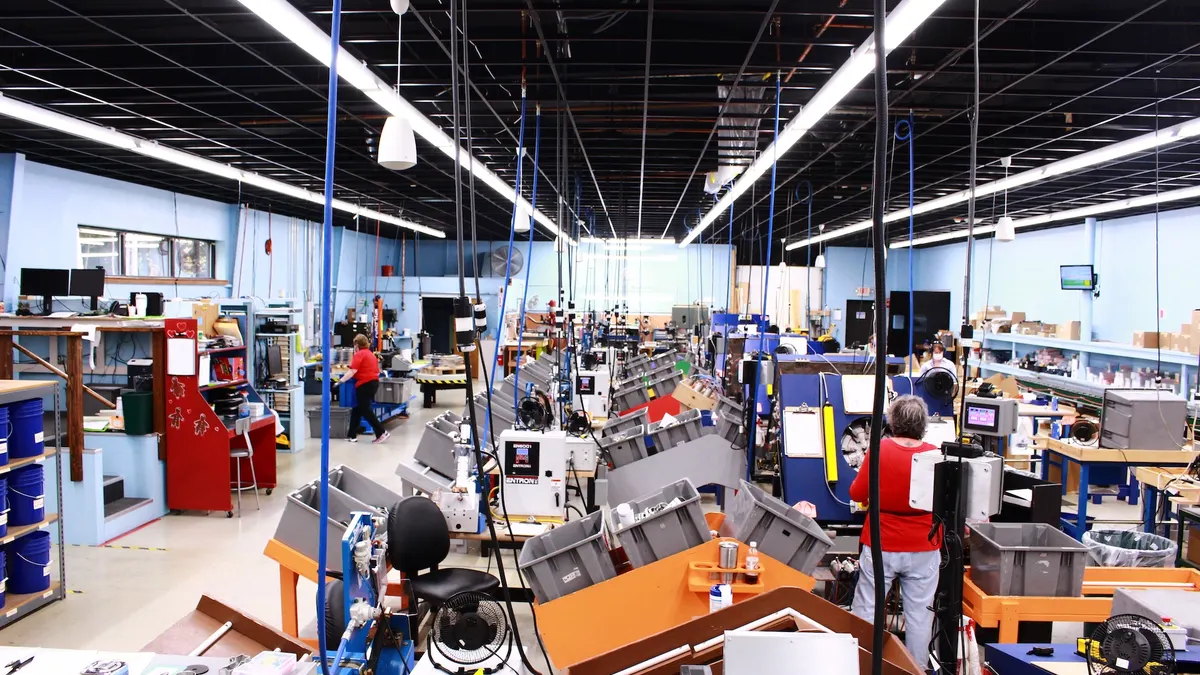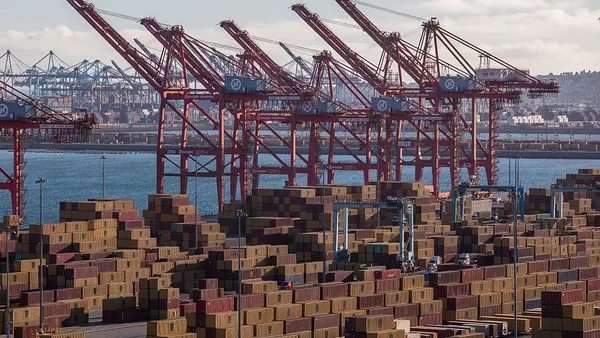Dive Brief:
- Truck driver shortages, port personnel heath checks and other transportation snarls related to COVID-19 containment and mitigation efforts are keeping grain and other commodity supply chains from flowing normally, even as grain is in abundant supply worldwide.
- The impact of the disruption has hiked prices for some basic food ingredients and is likely to hit the developing world first and hardest, according to an April 3 report from the United Nations as interrupted and delayed supply lines lead to untenable price swings. These swings may eventually hit developed economies too, especially if global infrastructure crucial to the movement of grain and other agricultural commodities are compromised by the virus, according to the report.
- Wheat futures in Chicago saw notable jumps in March, while Canadian durum wheat priced at a three-year high this week, according to Bloomberg. Thai rice export prices were also at a six-year high as of Monday.
Dive Insight:
Food supply chains are running at full tilt downstream, with essential businesses like grocery stores posting Thanksgiving-like sales volumes in recent weeks. But upstream, the global raw materials supply chain is suffering from bottlenecks and diversions caused by varied national responses to the COVID-19 global pandemic.
The global food system's greatest challenge is not supply, but behavior up and downstream, according to the UN report. That behavior includes all manner of coronavirus mitigation efforts constricting the normal pace of global transportation and trade, which affects global ocean shipping capacity, trucking restrictions and trade practices.
Global markets will likely be in flux for months, the UN report found. Concerns about agricultural commodities are growing in the U.S. as harvest seasons approaches and the virus threatens to disrupt usual labor practices.
After initially restricting immigration from Mexico on account of the virus, the Trump administration eventually debuted a new streamlined H-2A visa process April 3 and designated existing farmworkers, with or without proper legal status, as essential workers. But farmers are still concerned laborers will be reticent to cross the border due to health concerns, according to multiple media reports.
Panic buying is also causing drastic shifts in regional supply and demand, according to the UN report, which can artificially inflate prices. Plus, some countries are already restricting trade of agricultural commodities to shore up domestic stockpiles. Russia and Ukraine are capping grain exports through June, according to list of trade restrictions compiled by Reuters.
For the UN, the chief concern is that interruptions in the normal course of global trade will threaten the food security of countries that rely on imports for the majority of their supply. The global state of flux is causing swings in prices for commodities that may eventually need to be passed on to consumers in order to protect margins during a time of increased operational expense across the supply chain.












